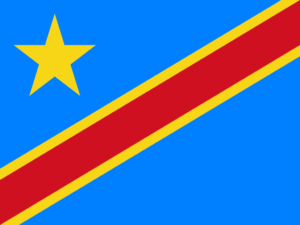Thanks to our responsive and reliable online panel in DR Congo we are able to collect consumption insights to help marketers make informed decisions to grow their business.


Robust quality in our online panel in DR Congo
With our online samples in DRC, you can find out about the Congolese consumption behaviors and tendencies of products, services and much more. Therefore, this can help your business reach another level when it comes to understanding your customers, leaving room for growth, development and insights.
Targeting consumers with our consumer panel in DR Congo
At Sagaci Research we provide specific targets in order to make your market research even more accurate. Check below the possibilities:
Location (Regions: Urban x Rural, Cities: Kinshasa, Likasi, Goma, etc…)
Household details (number and age of kids, kids under 18 years old, etc…)
FMCG categories (food & non-food)
Owners of appliances, electronics or vehicles
Financial products and insurance
Benefits of our online panel in DR Congo
Quality
Our algorithm checks the quality of our panelists
Engaged
Strategies on a daily basis to keep the panel engaged
Mobile
Which allow us to have answers in a few hours…
Reactive
Comparable multi-country studies.
Specifc
Detailed answers to your questions
Trustful
Only real members in our panel
More about our online sample in DR Congo
In the Democratic Republic of Congo, we can zoom in on many FMCG category consumption and purchase data. For instance, recent numbers in the oral care category show that only 32% of our representative panel members have used oral care products in the last 4 weeks. Women use the category significantly more than men (44% vs. 19%). Most importantly, the 36-45 are using it the most compared to other age groups while a third of users buy their products in kiosks, more than in supermarkets.
Are you interested to learn more about our insights in DR Congo using the online panels? Check our blog for more!
Panel Demographics in DR Congo
Country population
88 million
Urban
92 %
Rural
8 %
Smartphone penetration
~ 20%
Questions about feasibility and costs in DR Congo?
Reach out to our team now

More about our sample provider in DR Congo
-
Lip Products market in Angola
Detailed insights on the lip products market in Angola Explore in-depth insights into the lip products market in Angola, drawn from real consumer data. This market report analyzes key consumption trends, top lip products brands, packaging preferences, and shopper behaviour within the lip products category. Built from our proprietary data tools, it provides a detailed
04/07/2025 -
Liquid Soap market in Angola
Detailed insights on the liquid soap market in Angola Explore in-depth insights into the liquid soap market in Angola, drawn from real consumer data. This market report analyzes key consumption trends, top liquid soap brands, packaging preferences, and shopper behaviour within the liquid soap category. Built from our proprietary data tools, it provides a detailed
04/07/2025 -
Vodka market in Angola
Detailed insights on the vodka market in Angola Explore in-depth insights into the vodka market in Angola, drawn from real consumer data. This market report analyzes key consumption trends, top vodka brands, packaging preferences, and shopper behaviour within the vodka category. Built from our proprietary data tools, it provides a detailed look at market dynamics,
04/07/2025 -
Preserved Meats market in Angola
Detailed insights on the preserved meats market in Angola Explore in-depth insights into the preserved meats market in Angola, drawn from real consumer data. This market report analyzes key consumption trends, top preserved meats brands, packaging preferences, and shopper behaviour within the preserved meats category. Built from our proprietary data tools, it provides a detailed
04/07/2025


